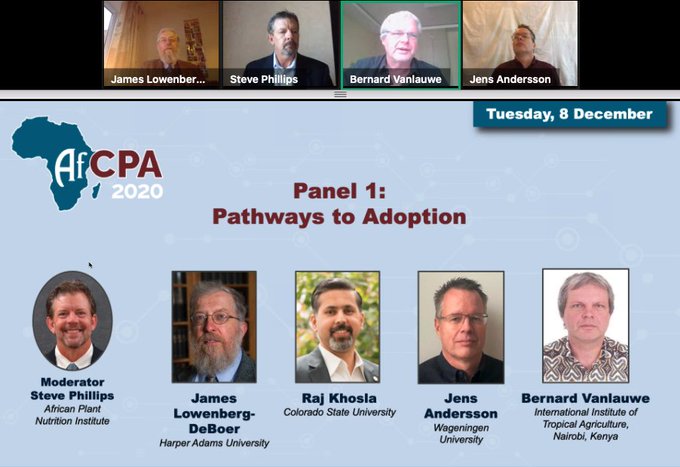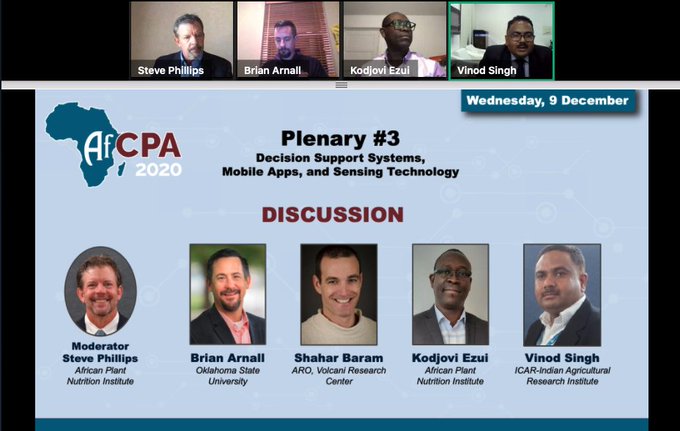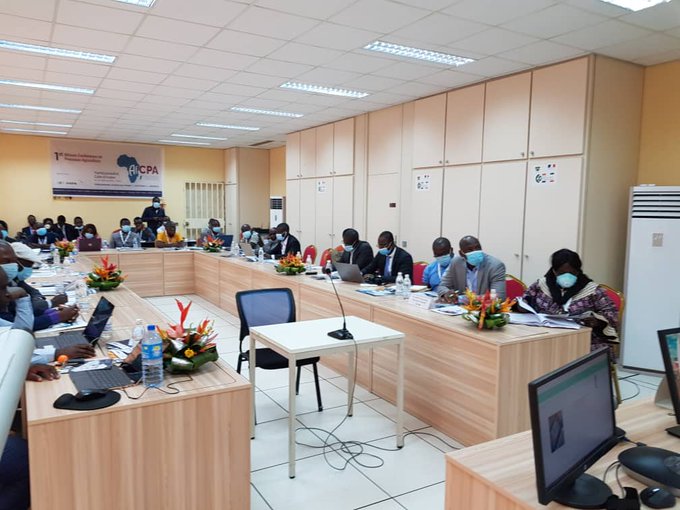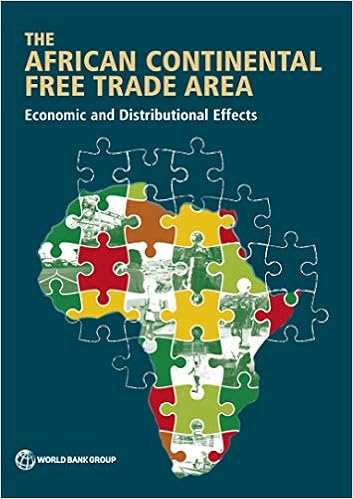AR4D
Funding Opportunities for Africa – December 2020
A G R I C U L T U R AL
Research
Fiat Panis Foundation — Prize for Master Thesis in
Food Security
The Fiat Panis
Foundation makes awards for university thesis and dissertation research in
themes of agriculture, ecology and natural resources, with a focus on food
security in developing countries. The Hans Hartwig Ruthenberg Graduate Award is
€7.5 thousand in support of qualified young scientists by honoring their
excellent master thesis in the field of food security. The deadline for
submissions (German, English) is 30 April 2021.
Danish Ministry of Foreign
Affairs — Research Collaboration 2021
Within
the framework of Danish development cooperation, the Danish Ministry of Foreign
Affairs calls for research proposals between Denmark and researchers in partner
countries. Window 1 will fund research (sustainable development and climate
change) with partners in the Danida priority countries. Window 2 will fund research
(renewable energy, environment, water resources, food quality, maritime
development) with partners in growth and transition countries. Window 1 is open
to research institutions in Afghanistan, Bangladesh, Burkina Faso, Ethiopia,
Kenya, Mali, Myanmar, Niger, Palestine, Somalia, Tanzania, and Uganda, in
addition to Denmark. Window 2 is open to Danish research organizations in
collaboration with research institutions in Bangladesh, Egypt, Ethiopia, Ghana,
Indonesia, Kenya, Myanmar, South Africa, and Vietnam. For both windows, the
application deadline (Phase 1) is 26 February
2021.
Volkswagen Foundation -- Research Workshops and
Summer Schools in Sub-Saharan Africa
In its research
program "Knowledge for Tomorrow," the Volkswagen Foundation funds
research projects of African scientists in cooperation with partners in
Germany. The program supports research across all disciplines. To aid with
project proposals and development, the Volkswagen Foundation makes grants for
workshops, symposia, and summer schools in Africa to help partners discuss and
agree on research priorities and approaches. Applications for workshops and
summer schools can be submitted at any time in consultation
with the Foundation's contact person for the program.
Agribusiness
The
United States Government as represented by the U.S Agency for International
Development (USAID), Bureau for Economic Growth, Education and Environment
(E3), Private Sector Engagement Team, invites applications for Global
Development Alliances (GDAs). Consistent with USAID’s Private Sector Engagement
Policy, the focus of this APS is proactive engagement of and collaboration with
the private sector in the identification and definition of key business and
development problems and opportunities; the development and co-creation of
market-based and market-oriented approaches to solve those problems and seize
those opportunities; and the facilitation and implementation of such approaches.
Closing
date for application is on December 16, 2022
Vital Voices -- Fellowships for Women
Entrepreneurs
Vital Voices offers
GROW Fellowships to women entrepreneurs who own small and medium-sized
businesses. The program includes customized business skills training, technical
assistance, leadership development, and access to networks to grow their
businesses. Thematic business areas may include agriculture, fisheries and
forestry with potential for growth. A limited number of need and merit-based
scholarships will be available. The deadline for applications is 15 December 2020.
Bio-diversity,
Environment, Climate change
Pulitzer
Center — Rainforest Investigations Fellows
The Pulitzer Center
accepts reporting fellowship applications for its Rainforest Investigations
Network (RIN). The network seeks to create an ecosystem of collaboration among
journalists to follow the money and the many illegal practices and legal loopholes
that enable industrial-scale deforestation in the world’s three main tropical
rainforest regions: Amazon, Congo Basin, and Southeast Asia. Experienced
investigative journalists with a proven track record are eligible to apply for
fellowships. Fellows will receive data, communication, and coordination support
from the Pulitzer Center. The last day to apply is 20 December 2020.
German
Academic Exchange Service — Doctoral Scholarships for Africans
The German Academic
Exchange Service (DAAD) offers two doctoral scholarships at the Leibniz Centre
for Tropical Marine Research (ZMT). The scholarships are related to the
interdisciplinary research topic “Adaptation of marine socio-ecological systems
to changing environments.” The scholarships will be granted for up to 4 years.
Applicants need to originate from Sub-Saharan Africa and hold a university
degree. The scholarship includes a monthly allowance of €1,200, plus additional
travel and research allowances. Applications have to be submitted by 20 December 2020.
U.S.
Department of State — Wildlife Trafficking in Sub-Saharan Africa
The U.S. Department
of State, Bureau of International Narcotics and Law Enforcement Affairs (INL),
supports activities that counter wildlife trafficking and illegal logging in
Sub-Saharan Africa. The overall goal is to reduce the ability of criminal
groups to profit from poaching and trafficking of protected animals, as well as
protected timber and plants, originating from Africa. Applicants may request up
to US$1.5 million for the implementation of anti-wildlife crime related
activities. Eligibility extends to qualified U.S. based and foreign non-profit
organizations (including NGOs), and educational institutions. The closing date
for submission of applications is 06 January 2021.
European
Commission — Citizen Involvement to Address Climate Change
The
European Commission (EC) seeks to strengthen the active role of citizens and
their direct involvement to address climate change and other human actions
harming the environment. The EC funds projects that directly involve citizens
and communities in contributing to climate action and protecting the
environment, thereby reducing their carbon and environmental footprint. The
Commission considers proposals requesting a contribution between €3-5 million.
A full list of eligible countries is provided in the call. The submission
deadline is 26 January 2021.
European
Commission — Climate-Neutral Cities
The
European Commission (EC) seeks partners to develop a one-stop shop platform
that provides technical, regulatory, financial and socio-economic expertise to
cities for developing and implementing their climate action plans in support of
a climate-neutral economy by 2050. The project can involve research
organizations, academia, social entrepreneurs, NGOs, national and local
authorities and citizens. The platform should facilitate the coordination of
ongoing European activities in the area of climate neutrality for cities. The
Commission considers proposals requesting a contribution of up to €53 million.
A full list of eligible countries is provided in the call. The submission
deadline is 26 January 2021.
InsuResilience
Solutions Fund — Climate Risk Insurance Products
InsuResilience
Solutions Fund (ISF) seeks projects with a holistic approach on disaster relief
and preparedness. The Fund will support the development of new climate risk
insurance products or the scaling-up of already existing products with the aim
to increase the resilience of poor and vulnerable people in developing
countries to climate change. The ISF provides grant-based co-funding of up to
€2.5 million, but requires matching the grant funding (in-kind and/or as a
financial contribution). Eligibility extends to private and public
organizations located in Asia and the Pacific, Africa, Eastern Europe, and
Latin America. The application deadline is 29
January 2021.
German
Government — International Climate Initiative Small Grants
Germany’s
International Climate Initiative (IKI) supports projects on climate change
mitigation and adaptation, and biodiversity projects that have climate
relevance. The focus of the IKI Small Grants scheme is to provide support to
the implementation of projects addressing the global loss of biodiversity in
connection with climate change. The IKI Small Grants scheme will select project
proposals with a funding volume of up to €200 thousand. Not-for-profit
organizations and for-profit non-government organizations, if they pursue
strictly non-profit objectives, are eligible to apply. The deadline for
applications is 09 February 2021.
German
Government — International Climate Initiative: Thematic Selection
The
International Climate Initiative (IKI) funds climate projects that address
pressing challenges in the areas of climate change mitigation and biodiversity
conservation, including the unique issues caused by the Covid-19 pandemic. The
funding amount provided by the German Government ranges from €5 million to €30
million per project. Applicants for funding must apply as a consortium.
Nonprofit organizations, enterprises, universities and research institutions as
well as international intergovernmental organizations are eligible. The
selection procedure is done in two stages. In the first stage, interested
implementing organizations submit a project outline. Project outlines must be
submitted by 10 March 2021.
Critical
Ecosystem Partnership Fund — Protecting Biodiversity of the East Melanesian
Islands
The
Critical Ecosystem Partnership Fund (CEPF) invites applications for large
grants (up to US$200 thousand) in support of biodiversity conservation in the
East Melanesian Islands. The focus is the Solomon Islands, Vanuatu, and the
islands region of Papua New Guinea. Eligibility for funding extends to
community groups and associations, NGOs, private enterprises, universities,
research institutes, and other civil society organizations. CEPF posts the
ecosystem profile and useful information for applicants in the announcement.
The deadline for letters of inquiry is 15 January 2021.
Prince Bernhard Nature Fund —
Conservation of Endangered Species (Flora & Fauna)
The
Prince Bernhard Nature Fund (PBNF) aims to save critically endangered flora and
fauna in tropical and subtropical regions of Africa, Asia, and Latin America.
It gives funding preference to organizations in these regions, sometimes in
partnership with parties in Europe or North America. Projects have to focus on
critically endangered species on the IUCN Red List. Grants are up to €20
thousand or US$20 thousand. The PBNF only supports registered non-profits and
favors smaller grassroots organizations over international organizations. The
next application deadline is 01 February 2021.
Conservation,
Food and Health Foundation — Local Project Support
The Conservation,
Food and Health Foundation supports special projects and programs in the areas
of conservation, food, and health in low- and lower-middle-income countries in
Asia, Africa, Latin America, and the Middle East. The foundation supports
projects that demonstrate local leadership; develop the capacity of local
organizations; and address a particular problem or question in the field.
Eligibility extends to NGOs, community-based organizations and academic
institutions. There is no maximum grant size. The average grant is approx.
US$20 thousand. Grants exceeding US$30 thousand are rarely awarded. The
application deadlines for concept notes are 01 January and 01 July 2021.
City
Climate Finance Gap Fund -- Urban Climate Action
The City Climate
Finance Gap Fund (Gap Fund) supports cities and local governments in preparing
and prioritizing climate-smart plans and investments with the goal of
attracting more financing and support for implementation. The Fund focuses on
climate-smart urban planning and early-stage project preparation in developing
and emerging countries. Selected proposals will receive technical assistance
and capacity building. Cities and local authorities can apply by submitting an
Expression of Interest. There is no application deadline.
Save Our Species -- Rapid Action Grants: South
Africa
Save Our Species
(SOS) invites proposals for Rapid Action Grants targeting terrestrial or
freshwater threatened species in South Africa. Rapid Action Grants are also
open to projects responding to threats linked to COVID-19 crisis and its
consequences. To be eligible projects should respond to emergency situations
requiring rapid action, rather than proposing programmatic action on
long-standing issues. Applicants can request grants up to €100 thousand (no
matching funds required) for projects of 12 months duration. Applications can be submitted anytime.
Global Innovation Fund -- Social Innovations for
the Developing World
The Global
Innovation Fund (GIF) welcomes proposals of innovative and cost-effective solutions
that address any major development challenge (including energy, water access,
agriculture and fisheries) in any country or in multiple countries of the
developing world. The program is open to teams and coalitions from social
enterprises, for-profit companies, NGOs, government agencies, international
organizations, and researchers anywhere in the world. GIF offers grants, loans,
and equity investments ranging from US$50 thousand to US$15 million. Applicants
should propose the level and type of funding that is appropriate for their
innovation, based on the stage of development. GIF accepts applications on a continuous basis.
Fellowships/scholarships/grants
African
Women in Agricultural Research and Development — One Planet Fellowship
African
Women in Agricultural Research and Development (AWARD) invites applications for
the One Planet Fellowship. The Fellowship seeks to build a network of African
and European scientist leaders to help Africa’s smallholder farmers adapt to
climate change. Applicants from the following Sub-Saharan African countries are
eligible to apply: Algeria, Benin, Burkina Faso, Côte d’Ivoire, Ethiopia,
Kenya, Malawi, Mali, Morocco, Nigeria, Senegal, Tanzania, Togo, and Zambia.
Selected candidates will participate in intensive training workshops aimed at
fostering leadership skills, strengthening scientific research skills including
integrating gender into their research. The call for applications closes on 15
February 2021.
Marine Stewardship Council -- Ocean Stewardship
Fund
The Marine
Stewardship Council invites fisheries, scientists, NGOs and postgraduates to
apply for grants from the Ocean Stewardship Fund. The fund supports best
practices in sustainable fishing with the aim to increase the number of
sustainable fisheries around the world. Grants are also available to support
small-scale fisheries and fisheries in the developing world. Furthermore, the
Student Research Grant awards funding to support postgraduate students who are
carrying out research with fisheries engaged or working towards the MSC
program. Awards of between £5 thousand to £50 thousand are available across
five different strands. The application deadline is 06 January 2021.
Institute of Current World Affairs —
Fellowship Program 2021
The
Institute of Current World Affairs (ICWA) makes grants to support fellows who
carry out self-designed independent studies for a minimum of two years in the
developing world. Fellows must hold the promise of enriching public life in the
United States by enhancing the understanding of foreign countries, cultures and
trends, therefore candidates must show strong and credible ties to U.S.
society. Proposals in the fields of environment, climate change, sustainability
and conservation are welcome. Candidates who seek fellowships may reside in any
developing country. Applications for the June 2021 appointment are due 15 December 2020.
Association
of Commonwealth Universities — Queen Elizabeth Commonwealth Scholarships
2021/2022
The
Association of Commonwealth Universities (ACU) supports the Queen Elizabeth
Commonwealth Scholarships for citizens of developing Commonwealth countries.
The scholarship funds studies for a two-years Master’s degree in low- or
middle-income countries of the Commonwealth across many subjects, including
conservation ecology, horticulture, agriculture, animal science, and many
others. Eligibility extends to citizens of (or with refugee status in) a
Commonwealth country other than the country hosting the award. Scholarships
cover tuition fees, living expenses (stipend) for duration of award, return
economy flight, one-off arrival allowance and research support grant (on
request). The application deadline is 18 January
2021.
University
of Queensland Australia — Online Course: Making Sense of Climate Science Denial
The
University of Queensland Australia, in partnership with edX, offers an online
course on climate change science. Participants will develop the skills and
knowledge to better understand climate change, identify the techniques and
fallacies that climate myths employ to distort climate science, and learn to
effectively debunk climate misinformation. The course is free and no previous
knowledge on the subject is required. Enrollment is open. The course starts on 09 February 2021.
University of Oxford -- Postgraduate Scholarships
2021/2022
The Weidenfeld and
Hoffmann Scholarships and Leadership Programme aims to support outstanding
postgraduate students from developing and emerging economies for post-graduate
studies at the University of Oxford, UK. Relevant areas of study include:
Biodiversity Conservation Management, Earth sciences, Environment,
International Wildlife Conservation Practice, Water Science, Zoology, and many
others. The scholarship will cover 100% of course fees and a grant for living
costs (of at least £15 thousand). The closing date for scholarship applications
is 10 January 2021, for most courses.
Harvard University -- Environmental Fellowships
2021
Harvard
University's Center for the Environment awards environmental fellowships. The
fellowships enable recent doctorate recipients to use Harvard’s resources to
tackle complex environmental problems. Eligibility for funding extends to
candidates with a doctorate or equivalent in any subject area from any
university in the world. Candidates may propose research projects in any
discipline. The fellowship includes a salary of US$70 thousand per year, plus
reimbursement for relocation expenses, annual allowance for travel and other
professional expenses. The deadline for applications is 11 January 2021.
International Institute for Applied Systems
Analysis -- Young Scientists Summer Program 2021
IIASA invites
doctoral students worldwide to participate in its Young Scientists Summer
Program held at the International Institute for Applied Systems Analysis's
headquarters in Laxenburg, Austria. The selected participants work with IIASA’s
senior scientists in research on energy, ecosystem services, water, risk policy
and vulnerability, and other topics. Scholarships are available from IIASA's
national member organizations. A limited number of scholarships are available
from other sources. The deadline for registrations to the 2021 program is 14 January 2021.
German
Federal Environmental Foundation -- PhD Fellowships
The German Federal
Environmental Foundation (DBU) offers 60 research fellowships per year to young
scientists in Germany and internationally across all disciplines of
environmental protection. The funding period is 36 months with a monthly
stipend of €1,500. DBU welcomes subjects of international importance, although
the work has to be done mainly in Germany, and with a clear reference to the
German environmental situation. DBU expects good German language skills from
all applicants. The application deadlines are 15 January and 15 June each year.
University of California at
Berkeley -- Beahrs Environmental Leadership Program 2021
The Beahrs ELP
sponsors an annual three-week summer course in environmental science, policy,
management, and leadership at UC Berkeley. The next course is scheduled for
July 2021. ELP invites applications from mid-career professionals around the
world. Workshops and field trips draw on the strengths of UC Berkeley and the
greater San Francisco Bay Area of California. Course participants continue
their learning and networking through the Berkeley ELP Alumni Network. The
program offers a limited number of partial scholarships. The final deadline for
scholarship review is 29 January 2021.
MasterCard Foundation -- Scholarships for Africans
at McGill University
The Mastercard
Foundation Scholars Program funds citizens from Sub-Saharan Africa for Master
graduate studies at McGill University, Canada. The eligible fields of study
under this program include Food Science & Agricultural Chemistry; Animal
Science; Biotechnology; and many others. The program offers full scholarships
to economically challenged students. The deadline for applications is 31 January 2021.
Stellenbosch Institute for Advanced Study --
Fellowships for Early-Career African Researchers
The Stellenbosch
Institute for Advanced Study (STIAS) offers the Iso Lomso Fellowships to
early-career African researchers in any discipline. The program provides a
three-year attachment to STIAS in addition to the possibility of a residency at
a sister institute for advanced study in North America, Europe, or elsewhere.
Other benefits include support for attending international conferences or
workshops, and support to the fellow's home institution for lecturer
replacement. The program is aimed at African scholars who have obtained a
doctoral degree within the preceding eight years, and who hold an academic
position at a university or research institution anywhere in Africa. The
application deadline is 15 February 2021.
Erasmus
Mundus -- Joint Master Degree in Aquaculture, Environment, and Society
The Erasmus Mundus
Joint Master Degree in Aquaculture, Environment and Society (EM JMD ACES) is a
full-time master's program for two years for European and international
students. Applicants are expected to have an appropriate background in
aquaculture, marine science, aquatic biology, biology, environmental sciences,
marine resources, environmental economics, or environmental policy.
Participating students will divide their semesters among universities in the
UK, Greece, and France. The program offers limited scholarships to cover
tuition fees, living, and travel expenses. The closing date for scholarship
applications is 15 February 2021.
World Wildlife Fund U.S. -- Educational Fellowships
2021
The World Wildlife
Fund (WWF-U.S.) supports individuals pursuing a master’s or doctoral degree in
conservation. The Russell E. Train Fellowships provide conservationists from
target countries with financial support for their studies and field research.
The 2021 focuses on achieving sustainable Blue Economy outcomes, with emphasis
on small-scale fisheries and tropical ecosystems across the Pacific, Atlantic,
and Indian Ocean. EFN also provides fellowships to current and aspiring
university faculty that are affiliated with or currently employed at African,
Asian and Latin American universities to pursue a PhD in conservation-related
fields. Applicants may request up to US$30 thousand per year for up to two
years. The application deadline is 01 March 2021.
Alexander von Humboldt Foundation -- International
Climate Protection Fellowships 2021
The Alexander von
Humboldt Foundation offers 15 fellowships for young climate experts from
developing countries interested in conducting a project in Germany and pursuing
long-term collaboration. The fellowship (up to € 2,600 per month) allows future
leaders to spend a year in Germany working on a research-based project of their
own choice in the field of climate protection. Fellows choose their own hosts.
The fellowship includes intensive language training and an orientation program during
the introductory phase. The deadline for applications is 01 March 2021.
IHE Delft Institute for Water Education — MSc in
Sanitation 2021/2022
IHE Delft accepts
applications for academic admission to the Master of Science Program in
Sanitation. The program is aimed at young and mid-career sanitation
professionals, working in water supply and sewerage companies, municipal
assemblies, government ministries, NGOs and consulting firms. The Bill and
Melinda Gates Foundation offers 10 partial scholarships for the academic year
2021-2022. Partial scholarships cover €15 thousand of the total costs. The
candidate is expected to cover the remaining costs of the program from other
sources. The application deadline for partial scholarship through the Bill and
Melinda Gates Foundation is 01 May 2021.
Technische Universität Dresden -- Masters in
Tropical Forestry 2021
The MSc Course in
Tropical Forestry taught at Technische Universität Dresden (TDU) in Germany
qualifies students to develop sustainable forest management strategies and
implement development-relevant interventions in rural and peri-urban areas.
Germany's DAAD (the German Academic Exchange Service) will fund a limited
number of scholarships for applicants from developing countries to enroll in
TDU’s 2-year masters program. Applicants must hold a university degree in
forestry, agriculture, horticulture, or other related field. The deadline to
apply for DAAD scholarships is 30 October 2021.
AWARDS
and O T H E R
The Center for
Collaborative Investigative Journalism (CCIJ) supports two water-related
stories on WASH, access to drinking water, health facilities and schools,
handwashing, and many more. The grant of US$2,100 should be used to cover all
the costs related to the story, including fees for team members, travel, and
any other related costs. Journalists from Sub-Saharan Africa are invited to
submit story pitches and provide professional references. The closing date to
submit a story pitch is 18 December 2020.
Nominations
are open for the annual Global Water Awards 2021. Global Water Intelligence
seeks technologies, plants, projects, and companies that made significant
contributions to the development of the water sector. Focus areas include water
or wastewater treatment, water conservation and management, ecologically
sustainable industry technologies, and commercial solutions, among others.
Nominations are open to everyone (including individuals, companies,
organizations, or initiatives etc.). Nominations close on 28 February 2021.
The
GET.invest Finance Catalyst supports small- and medium-scale renewable energy
projects and businesses in Sub-Saharan Africa, the Caribbean, and the Pacific region.
The program provides advisory support on project and business plan development,
project and business structuring and accessing finance, at no costs. Eligible
applicants may be private sector developers, NGOs, universities or research
institutions. Applications are available in English only but applicants can
request support to overcome language-related issues. The Finance Catalyst
operates on various submission rounds all year long. Applications can be
submitted anytime.
Seeding
Labs — Scientific Equipment for Research and Education
Seeding Labs welcomes applications to participate in
Instrumental Access. The program makes high-quality laboratory equipment and
supplies more affordable to university departments in low- and middle-income
countries. Seeding Labs receives donated equipment from a variety of sources,
including research institutions and manufacturers. Applicants submit online
requests for items included in the Seeding Labs equipment inventory. Items are
mainly for biology and chemistry. The average value of the items included in a
shipment, based on the secondary (used) market, is generally in the range of
US$100 thousand. The recipient organizations are charged a fee (based on their
country’s income level) for program administration, equipment warehousing,
equipment packing, and ocean freight. The deadline for submissions is 12 February 2021.
Iridescent
— Technology Entrepreneurship Program for Girls
Technovation invites teams of girls from all over the world
to learn and apply the skills needed to solve real-world problems through
technology. Girls work with women mentors, find a problem in their community
and develop a mobile app to launch a startup. Categories may include
environment, poverty, health, and others. Eligibility extends to teams of up to
5 girls (aged 10-18 years). Registration deadline is 12
March 2021.
Paul M.
Angell Family Foundation -- Marine and Ocean Conservation 2021
The Paul M. Angell Family Foundation makes grants in
thematic areas that include marine and ocean conservation. The Foundation is
interested in marine protected areas; sustainable fisheries; conserving sharks
and rays; conservation of coral reefs; and limiting plastics pollution.
Eligibility extends to U.S. nonprofit organizations that have 501(c)3
registration and international conservation organizations. The application
deadlines for project support in 2021 are 20 November
2020 and 07 June 2021.
American
Society of Mammalogy -- Support to African Graduate Students
The African Graduate Student Research Fund makes awards to
African nationals pursuing graduate degrees in mammalogy. Projects must be
field oriented investigations of natural history, conservation, ecology,
systematics, wildlife biology, biogeography, or behavior. Each of two awardees
will receive US$1,500 and an online membership to the Society. Applications can
be submitted in English or French The application deadline is 01 April 2021.

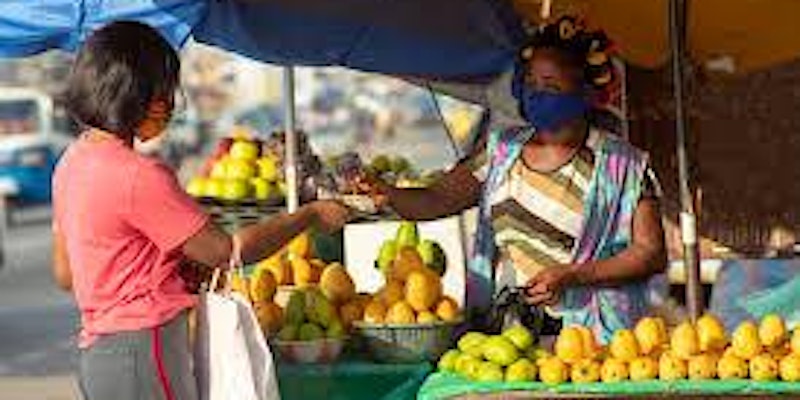

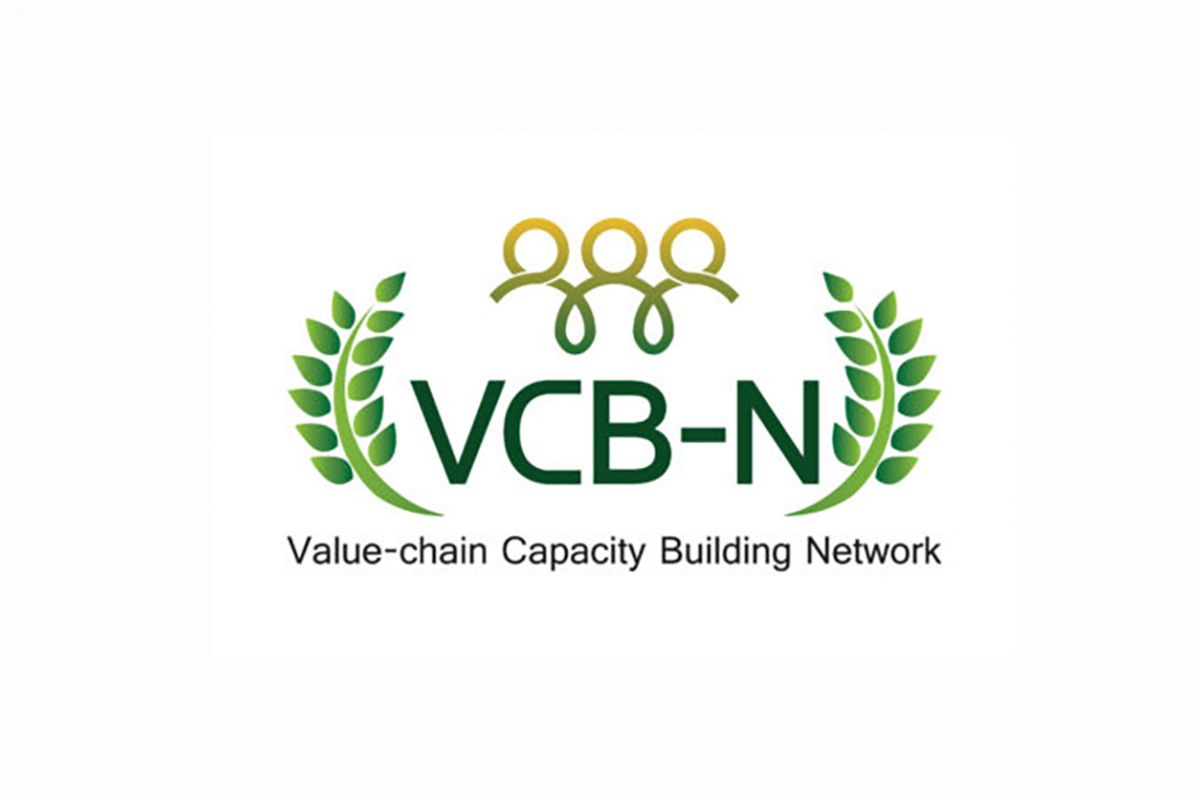

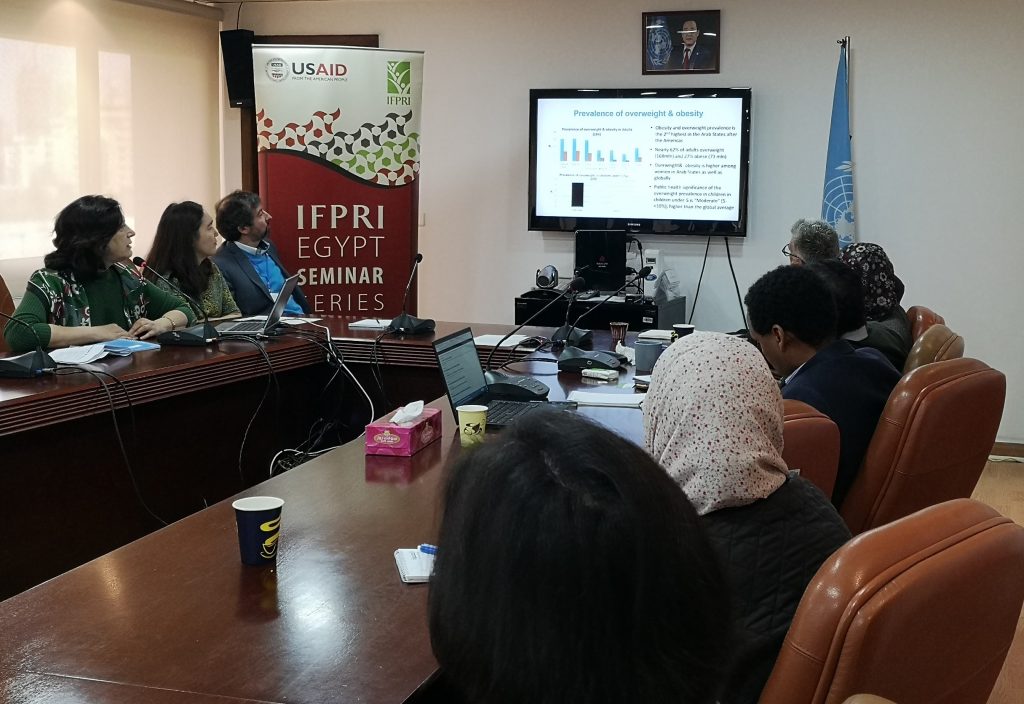
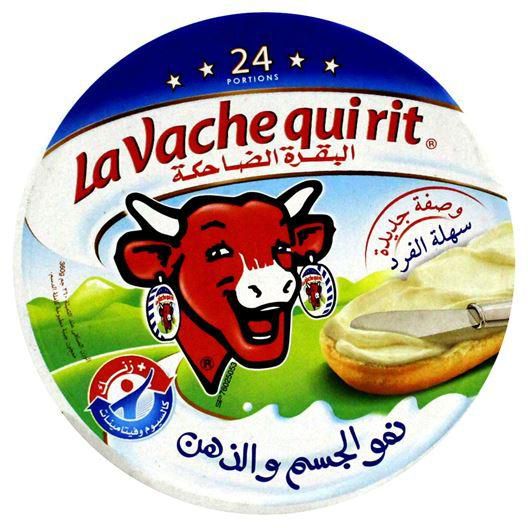







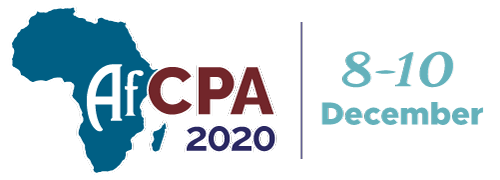


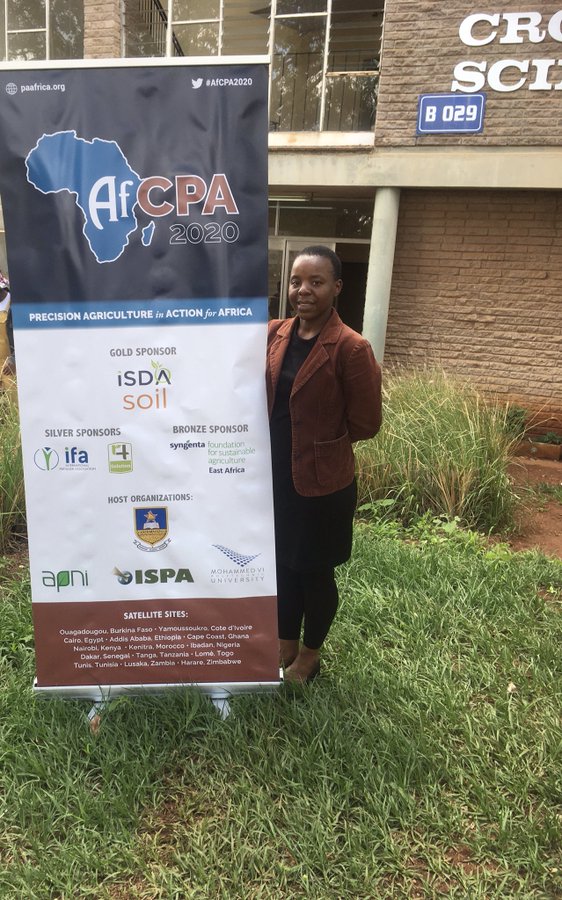 \
\